Table of Contents
Today where customer satisfaction hinges on speed and reliability, the last leg of delivery emerges as a critical factor in the e-commerce symphony. Customers anticipate not just products but prompt arrivals and seamless service experiences.
Understanding these expectations is not merely about meeting them but excelling beyond them – a reality that positions timely delivery as the definitive competitive battleground.
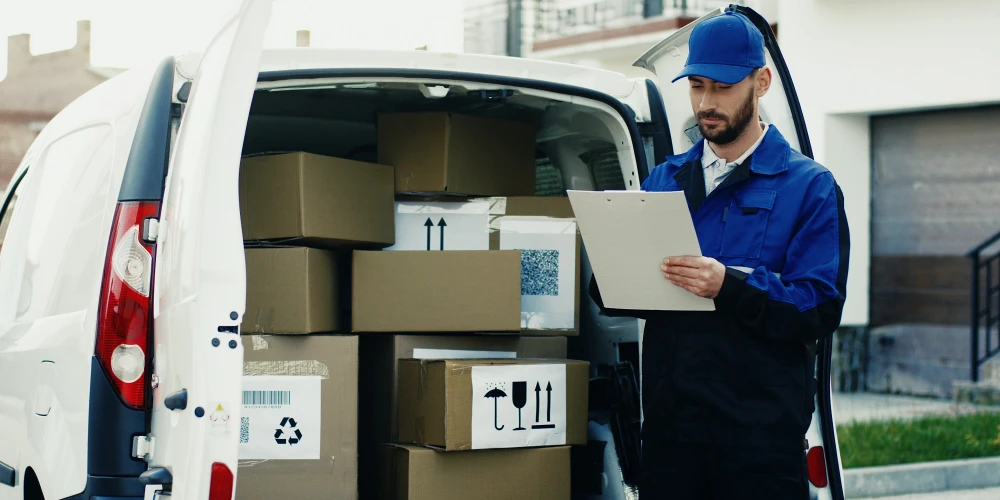
The complexities and costs of last-mile delivery are renowned for their ability to impact business operations and profit margins. Every player in the logistics arena grapples with the challenges that this final, crucial phase presents.
However, businesses find powerful avenues to overcome these obstacles by intelligent deployment of last-mile delivery management software. Such software solutions facilitate real-time visibility and robust communication channels, ensuring that the final touchpoint with customers is not just a transaction but a cornerstone of brand loyalty and operational efficiency.
What is Last Mile Delivery?
Last mile delivery is the final stage in the logistics chain where goods are transported from a distribution center or hub to the end-user’s doorstep. Due to its intricacies and complexities, this critical phase is often the most challenging and expensive part of the delivery process.
Last mile delivery, with the robust last-mile delivery management software aims to bridge the gap between the distribution center and the customer’s location, ensuring timely and efficient delivery while meeting the increasing demands for convenience and speed in today’s fast-paced world.
It involves navigating through urban landscapes, negotiating traffic congestion, and managing diverse delivery destinations while striving to uphold service quality and customer satisfaction.
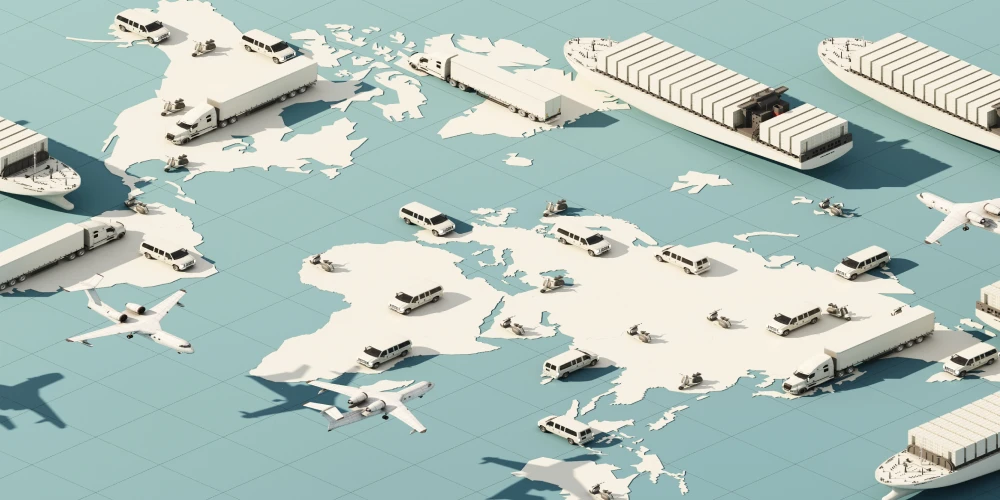
In recent years, last-mile delivery has witnessed significant transformations driven by technological advancements and changing consumer preferences. Innovations such as route optimization algorithms, autonomous vehicles, and crowdsourced delivery networks have emerged to streamline operations and enhance the efficiency of last-mile logistics.
Furthermore, the rise of e-commerce and online shopping has intensified the demand for last mile services, prompting companies to explore innovative solutions to meet evolving customer expectations.
Despite the challenges and complexities, last mile delivery plays a pivotal role in the success of businesses across various industries, shaping the future of supply chain management and redefining the customer experience.
The Foundation of Efficient Deliveries: Route Optimization
Route optimization is a critical component of last-mile delivery management software. It significantly influences the speed and reliability of package deliveries. This powerful feature is a cornerstone for Third-Party Logistics (3PL) providers seeking to enhance operational efficiency and customer satisfaction. 3PL delivery management software leverages advanced algorithms to analyze traffic conditions, delivery locations, vehicle capacities, and time windows to generate the most efficient delivery routes.
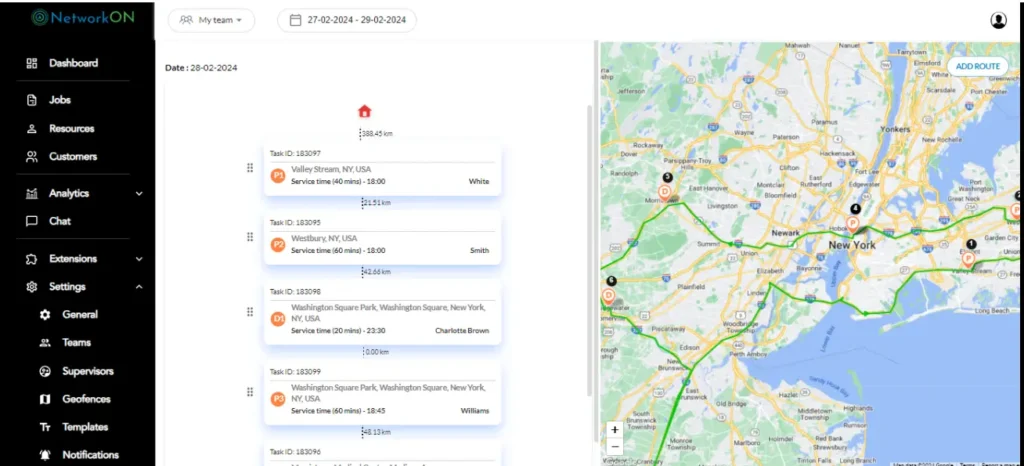
By optimizing routes, 3PL providers can minimize fuel consumption, reduce vehicle wear and tear, and maximize the number of deliveries completed within a given time frame. Moreover, route optimization enables real-time adjustments, allowing drivers to adapt to unforeseen circumstances such as traffic congestion or delivery priorities, ensuring timely and reliable service for customers.
As a result, 3PL delivery management software empowers businesses to streamline their last-mile operations, improve delivery performance, and ultimately enhance the overall customer experience.
Using Software to Calculate the Most Efficient Delivery Routes
Adopting sophisticated algorithms within last-mile delivery management software enables businesses to calculate the fastest and most cost-effective routes for their delivery fleet. This saves valuable time and reduces fuel consumption, contributing to cost savings and environmental sustainability.
Adapting to Real-Time Traffic and Obstacles
An agile delivery system can respond to real-time conditions. Last-mile delivery management software excels at adjusting to sudden traffic changes, road constructions, and other unforeseen obstacles. This adaptability ensures that deliveries stay on schedule, maintaining a steady flow regardless of the challenges faced on the road.
Balancing Delivery Volume with Route Planning
Efficient delivery management is not just about speed but also volume. The right software helps balance the number of deliveries with optimal route planning, ensuring drivers can handle their delivery load without being overburdened. This strategic distribution of packages means that every customer receives their orders on time, maximizing satisfaction and retention rates.
- Efficient Algorithms: Utilize the power of advanced computing to streamline delivery route planning.
- Real-Time Adjustments: Stay agile with software that adapts delivery routes on the fly as conditions change.
- Volume Management: Leverage technology to ensure a balanced delivery workload that drivers can manage effectively.
The impact of route optimization on last-mile delivery cannot be overstated. As the lifeline of delivery logistics, the right management software empowers 3PL providers to surpass operational hurdles and customer expectations with unparalleled proficiency.
Real-time Tracking and Visibility: Keeping Customers In the Loop
Transparency in last-mile delivery is no longer a luxury; it’s an expectation. With last-mile delivery management software, businesses can offer this transparency, providing customers unparalleled real-time tracking and visibility. This is crucial not only for customer satisfaction but also for efficient logistical operations.
The Significance of Real-Time Data for Businesses and Customers
Access to real-time data transforms how businesses manage deliveries and how customers experience them. For businesses, it means the ability to make agile decisions based on the current status of each delivery. This can lead to more efficient use and allocation of resources. Real-time data provides customers peace of mind, knowing exactly when to expect their deliveries. This level of service is becoming the standard in an increasingly competitive market.
Implementing GPS and IoT for Fleet Management and Vehicle Tracking
Integrating GPS and IoT technology into last-mile delivery management is a game-changer. It enables precise tracking of fleet movement and individual delivery vehicles. Not only does this help logistic teams monitor their assets, but it also ensures that customers have accurate, real-time information about their order’s journey.
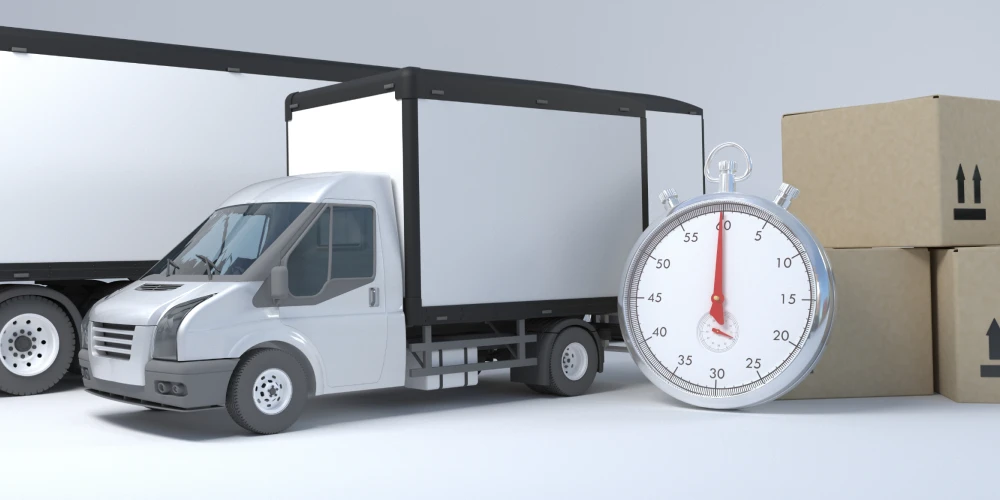
By leveraging GPS and IoT technology technologies, businesses optimize delivery routes and adhere to promised timelines.
Enhancing the Service Experience Through Updated Delivery Timelines
One critical component of customer satisfaction is delivering as per expectation. With real-time tracking, businesses can provide customers with dynamic updates on delivery timelines, adjusting for unforeseen delays in the last mile. This level of communication is critical for maintaining trust between the business and its customers. Ultimately, it leads to a more enhanced service experience, as customers feel informed and valued throughout the delivery process.
By embracing real-time tracking and visibility, companies are keeping up with current trends and setting the stage for future innovation in the fast-paced world of last-mile delivery. The right last-mile delivery management software is essential for any business that aims to excel in service and exceed customer expectations.
Automated Dispatch and Scheduling: Streamlining Operations
Last-mile delivery management software is transforming logistics companies’ operations by introducing automated dispatch and scheduling. This technology is pivotal in enhancing the efficiency and reliability of last-mile delivery services. Let’s delve into how these features benefit overall delivery management.
Optimization of Resource Allocation
One of scheduling software’s most significant advantages is optimized resource allocation. By harnessing the power of intelligent algorithms, last-mile delivery management software assesses the availability of drivers and vehicles, weather conditions, and traffic patterns to allocate resources most effectively.
This optimization level ensures that deliveries are carried out efficiently, minimizing downtime and reducing operational costs.
Scalability and Flexibility
Adjusting to varying delivery volumes is essential for scalability and maintaining service quality during peak and off-peak seasons. With automated dispatch and scheduling, logistics companies can scale their operations to handle increased delivery demands without sacrificing speed or customer satisfaction. This flexibility is key in adapting to the ever-changing e-commerce landscape and customer expectations.
Reduction of Human Error and Time Savings
One of the unavoidable aspects of manual dispatch and scheduling is the risk of human error. Automating these processes significantly reduces this risk, minimizing the chances of mistakes such as double-booking or overlapping routes. Furthermore, it saves precious administrative time that can be reallocated to other critical areas of business operations, thus further driving efficiency and productivity.
- Efficiently allocates drivers, vehicles, and routes using data-driven insights.
- Scales operations up or down with ease, matching delivery capacity with demand.
- Lowers the risk of errors and delivers time savings by reducing manual input in the scheduling process.
Customer Experience and Communication: The End-User Focus
Customer experience has rapidly taken center stage in the last-mile delivery process, transcending beyond package delivery to encompass a broader engagement strategy. Last-mile delivery management software is essential in pushing this customer-centric approach forward. By leveraging advanced features, companies can actively engage with their end-users, ensuring seamless delivery experience and maximized satisfaction.
Engaging Features of Management Platforms
Modern last-mile delivery management platforms have various features that foster active customer engagement. These include:
- Real-time delivery tracking allows customers to monitor their shipments every step of the way.
- Customized notification systems that send alerts via SMS or email about the status of their orders.
- Dedicated customer support through chat and helpdesk features is directly integrated into the software.
Importance of ePOD for Customer Trust and Transparency
Electronic proof of delivery (ePOD) systems have significantly enhanced customer trust and transparency. An ePOD system equips customers with a verifiable acknowledgment of the goods received, often including time stamps, signatures, and photos.
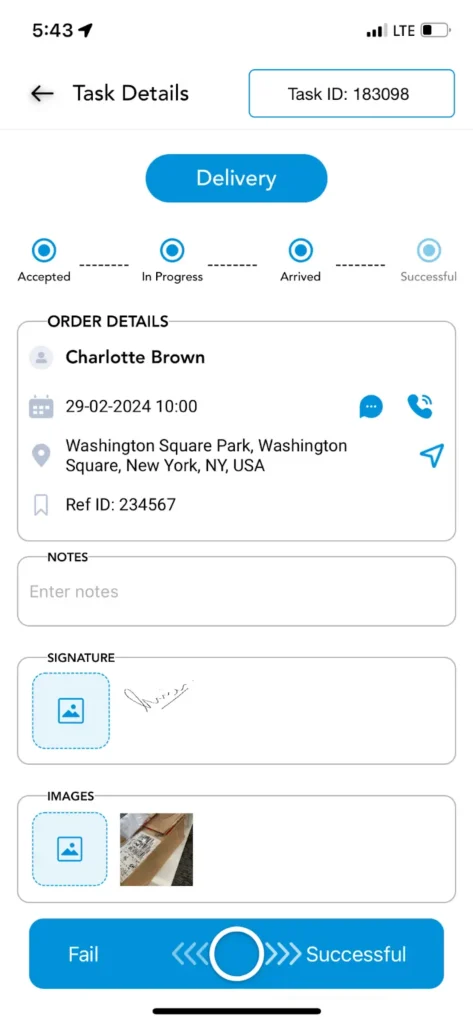
The Electronic proof of delivery is crucial for dispute resolution and instilling confidence in the delivery service.
Options for Contactless Delivery
In the wake of health and safety concerns, contactless delivery options have soared in importance. This method prioritizes customer health by reducing physical contact and streamlines the delivery process. Last-mile delivery management software that supports contactless delivery demonstrates adaptability, showing that service providers can meet modern consumers’ expectations and maintain high service standards.
Enhance Efficiency with WMS-Integrated Last Mile Delivery Management
The seamless integration of last-mile delivery management software with Warehouse Management Systems (WMS) plays a pivotal role in the modern supply chain. By bringing these two powerful tools together, businesses can supercharge their delivery mechanisms and ensure a more cohesive approach to logistics. Let’s delve into why this fusion is critical for operational success.
The Benefits of Syncing Last-Mile Delivery Software with WMS
Integrating last-mile delivery software with Warehouse Management Systems is not just a value-added option; it is becoming essential in today’s fast-paced delivery environment. It brings forth numerous benefits, such as:
- Reduced Order Fulfillment Times: With real-time data exchange, orders can be prepared and shipped out more quickly.
- Enhanced Visibility: It provides complete transparency from the warehouse shelf to the customer’s doorstep.
- Better Resource Utilization: It ensures that warehouse activities align with delivery schedules for efficient resource use.
Streamlining Inventory and Delivery Processes
The connection between last-mile delivery management software and WMS streamlines inventory management by synchronizing stock levels with ongoing deliveries. This alignment reduces the potential for stock discrepancies and promotes a more accurate inventory management process.
Ensuring Timely Dispatch and Reducing Waiting Times
One of the chief concerns in last-mile delivery is the timeliness of dispatch. The integration with WMS ensures that products are dispatched on time and efficiently, reducing customers’ waiting times and improving their overall experience.
The Analytical Edge: Delivery Analytics and Performance Metrics
Last-mile delivery management software is more than transporting items to their final destinations. Staying ahead in the competitive market requires a nuanced understanding of logistics performance.
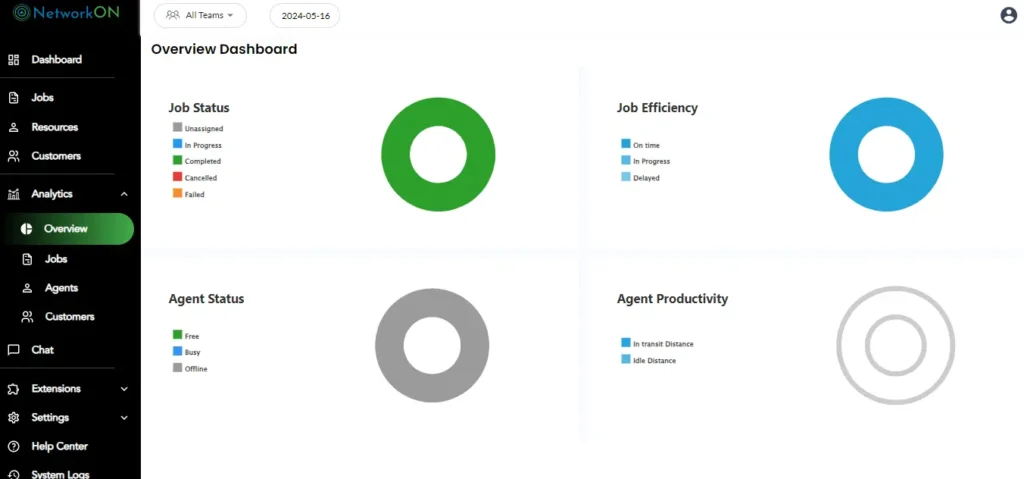
The analytical capabilities provided by such software are instrumental in assessing and maximizing delivery efficiency.
Utilizing Data to Understand Service Performance
By leveraging the power of delivery analytics, companies can monitor various performance metrics, from on-time delivery rates to driver performance. This data is critical in highlighting operational strengths and pinpointing areas that require attention. Last-mile delivery management software transforms this data into actionable insights, empowering decision-makers to foster continual service improvement.
Tailoring Logistics Strategies Based on Analytics
Data-driven decision-making is at the heart of today’s logistics strategies. By utilizing sophisticated analytics, businesses can predict trends, optimize delivery routes, and schedule efficiently. This leads to substantial cost reduction and operational efficiency, giving companies the edge to outpace competitors and exceed customer expectations.
Identifying Trends and Areas for Improvement
Advanced analytics tools within last-mile delivery management software can uncover patterns in delivery times, customer satisfaction levels, and driver performance. Identifying these trends is imperative for businesses to refine their logistics approach, implement proactive changes, and continuously raise the bar for service quality and reliability.
- Comprehensively monitor logistics performance with robust analytics.
- Utilize predictive insights for strategic decision-making and resource allocation.
- Enhance customer satisfaction through improved delivery reliability and efficiency.
Mastering Returns with Last Mile Delivery Management Software
Last-mile delivery management software plays a crucial role in shaping the efficiency of reverse logistics, a critical component for businesses that aim to sustain a positive customer experience and maintain strong operational control. Managing returns effectively can be a complex endeavor. Still, the right tools and approach can transform it into a seamless process that strengthens customer loyalty and supports a healthy bottom line.
The Role of Last Mile Delivery Software in Efficient Reverse Logistics
In the current e-commerce landscape, returns management is as important as the initial delivery. Advanced last-mile delivery management software allows companies to automate and optimize the reverse flow of goods, ensuring that the process is as fast and cost-efficient as outbound logistics. This includes initiating return processes, automating the allocation of return orders to drivers, and assisting in reintegrating returned goods into inventory.
Managing Customer Returns with Ease and Efficiency
The convenience of handling customer returns can drastically affect consumer satisfaction and loyalty. With robust last-mile delivery management software, businesses can offer consumers an easy-to-use platform to process returns and ensure a swift and transparent process. This level of service excellence encourages repeat business and significantly reduces the administrative burden associated with returns management.
Addressing the Challenges of Reverse Logistics and Minimizing Losses
Reverse logistics presents challenges, from additional shipping costs to potential product loss or damage during transit. A well-implemented last-mile delivery solution addresses these challenges head-on by optimizing route planning for return pick-ups and employing real-time tracking to ensure accountability at every step. This strategic approach helps businesses minimize losses and recover the maximum value from returned products.
- Efficient Handling: Streamline return processes and reduce handling time.
- Automated Systems: Decrease human error and increase overall process consistency.
- Visibility and Control: Maintain insight into the reverse logistics chain to manage inventory and customer expectations better.
Pursuing Environmental Sustainability in Last Mile Delivery
Last-mile delivery management software improves efficiency and customer satisfaction while promoting environmental sustainability. By streamlining delivery routes and optimizing fleet management, these platforms greatly reduce unnecessary travel, leading to a noteworthy decrease in delivery operations’ carbon footprint.
Route Optimization and Fleet Management
The advanced algorithms used by last-mile delivery management software provide route optimization solutions that significantly reduce fuel consumption. By calculating the most efficient paths between multiple destinations, these systems ensure drivers cover the least possible distance, reducing emissions.
Furthermore, efficient fleet management features help companies choose the right vehicle for the job, promote carpooling when possible, and encourage electric vehicle use, each further contributing to a greener delivery process.
Last Mile Delivery Software: A Pillar for Green Initiatives
Last-mile delivery management software isn’t just a tool for business optimization—it’s an ally in the fight against climate change. The ability to collect and analyze data on delivery routes, vehicle emissions, and driver behavior means businesses can set well-informed sustainability goals and monitor their progress. With features specifically designed to reduce environmental impact, last-mile delivery software helps companies become eco-friendly and meet their corporate social responsibility objectives.
- Reduction in idle times by anticipating delivery windows
- Decrease in fuel consumption through optimized route planning
- Enhanced vehicle load planning, leading to fewer trips
- Support for electric and hybrid vehicle integration in the delivery fleet
The race for sustainability in last mile delivery is ongoing, and leveraging management software is a powerful step in the right direction. Embracing these innovations enhances brand reputation and protects our planet for future generations.
Expanding Horizons: Third-party Carrier Integration
Last-mile delivery management software transcends traditional delivery boundaries by seamlessly integrating with third-party carriers. This pivotal feature enables businesses to expand their delivery networks without the complexity of manually managing multiple service provider relationships.
Seamless Connectivity with Multiple Carriers
The ability to connect with a diverse range of carriers through a single, unified platform is a game-changer for last-mile delivery operations. It streamlines the selection of the most suitable carrier for each delivery based on destination, parcel size, and delivery speed requirements.
Expanding Delivery Networks
Integrating multiple carriers into your delivery system simplifies logistics and broadens the potential delivery network. This unlocks new geographies and customer segments, helping businesses grow and scale with agility.
- Manage a larger volume of deliveries with efficiency.
- Access specialized carrier services tailored to specific types of deliveries.
- Enhance the resilience of your delivery operations by leveraging a broader carrier base.
Unified Management of Service Providers
Last-mile delivery management software empowers businesses to maintain oversight and control over their entire delivery ecosystem, even when it includes numerous third-party carriers. This unified approach simplifies operations, ensures accountability, and maintains high service standards for end customers.
Unlock Long-Term Success with Scalable, Flexible, and Cost-Efficient Delivery Management
In an industry where change is the only constant, businesses equipped with last-mile delivery management software gain a strategic advantage. Embrace a solution that meets today’s delivery challenges and scales for tomorrow’s growth, flexibly adapts to the ever-evolving market, and delivers undeniable cost efficiency. Let’s delve into these long-term benefits:
Scale with Ease
As your business grows, so will your delivery needs. Last-mile delivery management software lets you handle fluctuating delivery volumes seamlessly. Whether it’s the peak season rush or a steady increase in orders, your delivery infrastructure adjusts effortlessly without compromising service quality.
Unmatched Flexibility
The future of delivery is flexible. A flexible last-mile delivery management platform ensures your business can swiftly adapt to new delivery models, customer expectations, and market trends. This agility is the cornerstone of enduring success.
Cost Efficiency: More than Just Savings
Investing in robust last-mile delivery management software transcends mere cost savings. It’s about unlocking operational efficiency that reduces expenses while enhancing productivity. By optimizing routes, automating scheduling, and reducing manual interventions, your business minimizes waste and maximizes profitability.
- Adapting to different delivery volumes easily ensures you’re always ready to meet your customer’s demands.
- With cost benefits realized through improved operational efficiency, your investment in last-mile delivery management software pays off in multiple ways.
- Preparing for future growth without massive incremental investments positions your business to thrive as it scales, ensuring long-term financial health.
What makes NetworkON an optimal investment?
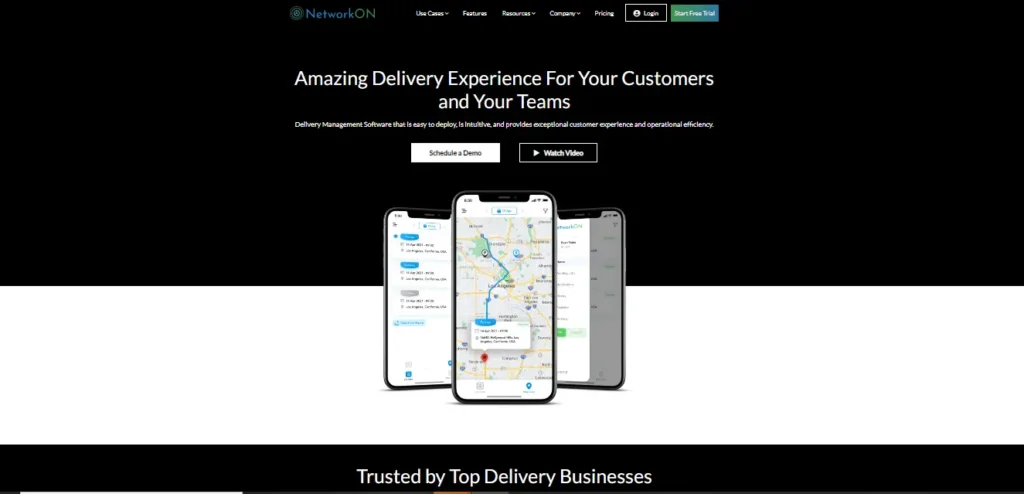
NetworkON emerges as the prime choice for last-mile delivery management software due to its comprehensive suite of features tailored to modern logistics demands. By leveraging sophisticated algorithms for route optimization, NetworkON ensures the most efficient and cost-effective delivery routes, minimizing fuel consumption and vehicle wear while maximizing delivery speed.
Real-time tracking and visibility features empower businesses to provide customers with transparent, agile, and reliable delivery experiences, fostering trust and loyalty.
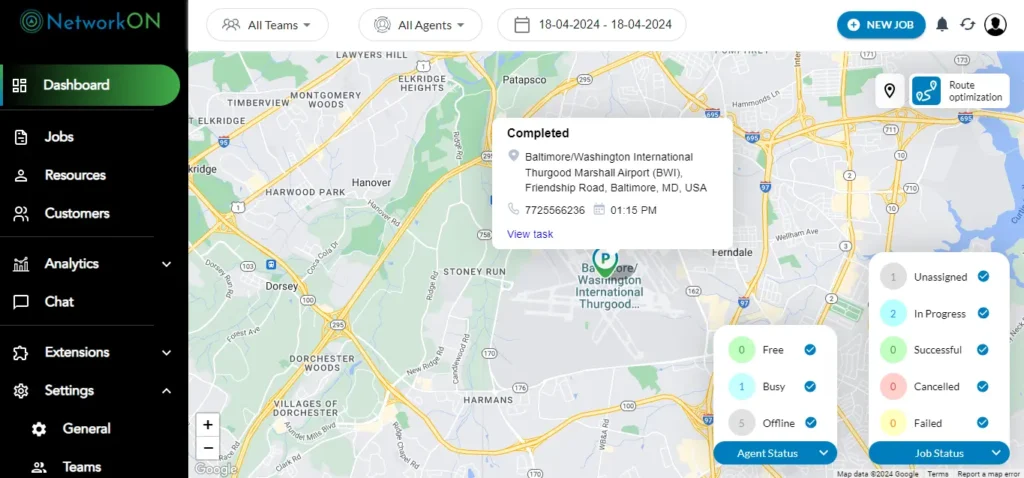
Moreover, NetworkON’s automated dispatch and scheduling functionalities streamline operations, reducing human error, optimizing resource allocation, and maintaining service quality even during peak demand.
Its customer-centric approach, including customizable notifications and contactless delivery options, enhances the end-user experience, driving customer satisfaction and repeat business. Additionally, NetworkON prioritizes environmental sustainability by supporting eco-friendly practices like electric vehicle integration and route optimization, aligning with businesses’ corporate social responsibility goals.
Furthermore, NetworkON’s scalability, flexibility, and unified management of service providers make it an ideal solution for businesses aiming to adapt and grow in the ever-changing logistics landscape. With NetworkON, businesses can efficiently manage their last-mile delivery operations, enhance customer satisfaction, reduce environmental impact, and position themselves for long-term success in the dynamic world of logistics.
Key Takeaways
- Efficient last-mile delivery hinges on route optimization, powered by sophisticated algorithms that calculate the fastest and most cost-effective routes for delivery fleets. This not only saves time and fuel but also contributes to environmental sustainability.
- Last-mile delivery management software offers real-time tracking and visibility, meeting customer expectations for transparency and providing peace of mind by keeping them informed about their orders’ journey.
- Automating dispatch and scheduling processes reduces human error, minimizes downtime, and optimizes resource allocation, ensuring efficient and reliable delivery operations.
- Modern management platforms prioritize customer experience through features like real-time tracking, customized notifications, contactless delivery options, and electronic proof of delivery (ePOD) systems, fostering trust and loyalty.
- By streamlining delivery routes, optimizing fleet management, and supporting eco-friendly practices like electric vehicle integration, last-mile delivery management software contributes to reducing the carbon footprint of delivery operations, aligning with sustainability goals.
Conclusion
Secure Your Competitive Edge with Last Mile Delivery Management Software.
In the complex and rapidly evolving world of logistics, last-mile delivery management software has emerged as the linchpin for successful 3PL providers. We have navigated various challenges and solutions, from route optimization to the criticality of customer experience, highlighting the areas where technology simplifies operations and acts as a growth catalyst.
The logistics landscape is increasingly technology-driven, demanding adaptability, foresight, and a commitment to continuous improvement. In this environment, adopting comprehensive delivery management software is not just an option but a necessity for businesses intent on maintaining a competitive edge. From seamless integration with WMS to ensuring regulatory compliance and supporting environmental sustainability, these platforms enable service delivery excellence at every step.
Now is the time for 3PL providers to invest in a robust last-mile delivery management platform. It’s not just about managing the now; it’s about empowering your business to scale, flex, and adapt to whatever the future holds. Enhance your customer’s experience, achieve real-time visibility and control over your logistics, and efficiently manage your operations.
Do not let the opportunity to transform your logistic operations pass you. Invest in sophisticated last-mile delivery management software today with NetworkON and take the first step in redefining the efficiency and reliability of your last-mile delivery services.
Contact us to discover how our innovative solutions can revitalize your last-mile delivery operations and help you stay ahead in the dynamic world of logistics.
Frequently Asked Questions
What is Last Mile Delivery Management Software?
Last-mile delivery management software is a comprehensive solution designed to optimize and streamline the final stage of the delivery process, from distribution centers to the customer’s doorstep. It encompasses route optimization, real-time tracking, automated dispatch, and customer communication tools to ensure efficient, reliable, and transparent delivery operations.
How Does Last Mile Delivery Management Software Benefit Businesses?
Last-mile delivery management software offers numerous benefits to businesses operating in the logistics and e-commerce sectors. These include:
It has increased operational efficiency through route optimization and automated dispatch, leading to cost savings and improved resource utilization.
Enhanced customer satisfaction and loyalty by providing real-time tracking, accurate delivery timelines, and seamless communication throughout the delivery journey.
Better management of returns and reverse logistics processes, minimizing losses and strengthening customer relationships.
Support environmental sustainability initiatives by reducing fuel consumption, optimizing fleet management, and promoting eco-friendly delivery practices.
What Features Should I Look for in Last Mile Delivery Management Software?
When choosing last-mile delivery management software, it’s essential to consider features that align with your business objectives and operational requirements. Key features to look for include:
Route optimization capabilities for efficient delivery planning and execution.
Real-time tracking and visibility tools to keep customers informed and ensure accountability.
Automated dispatch and scheduling functionalities to streamline operations and minimize human error.
Integration with Warehouse Management Systems (WMS) for seamless coordination between inventory and delivery processes.
Analytics and performance metrics for data-driven decision-making and continuous improvement.
How Can Last Mile Delivery Management Software Help Ensure Regulatory Compliance?
Last-mile delivery management software plays a crucial role in helping businesses comply with transportation laws and regulations. It provides:
Automated updates and real-time data on regulatory changes ensure delivery practices align with legal requirements.
Customizable workflows and reporting features that adapt to new compliance standards, facilitating seamless transitions and audit trails.
Support for safety standards, transport regulations, and industry-specific legislation, helping to mitigate risks and maintain ethical business practices.
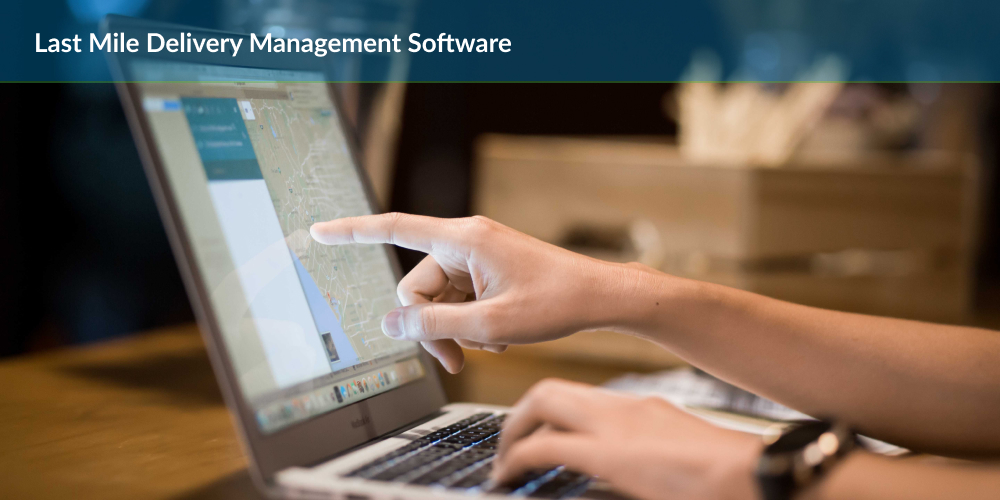


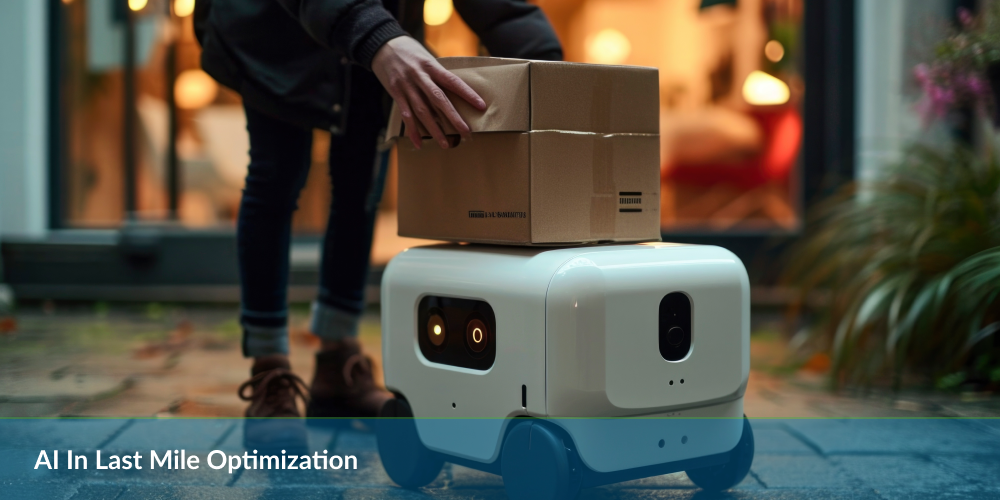
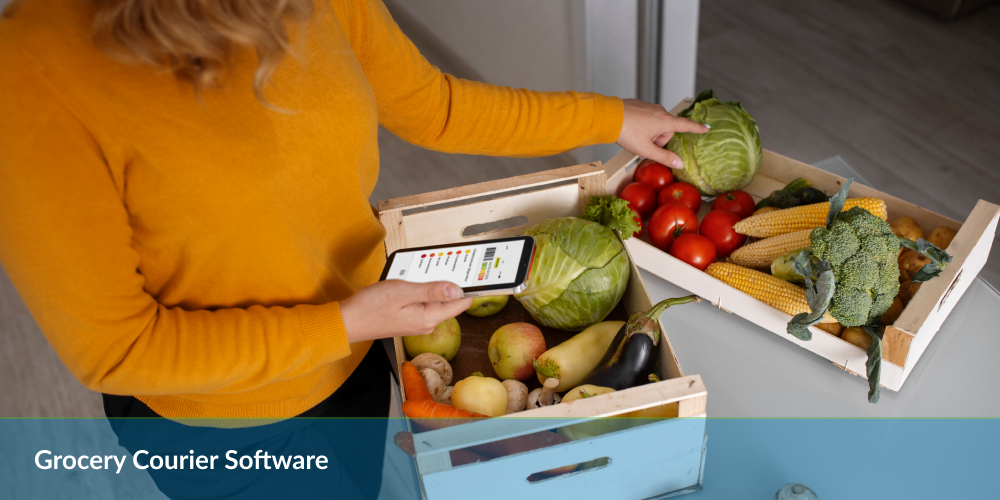
0 Conversations